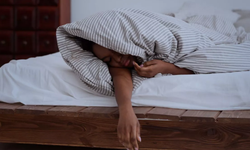Rana İrem Güler, Specialist Psychologist at Acıbadem Bodrum Hospital, gave information that will help the little ones overcome their fear of school, especially children who are meeting school for the first time these days when schools are opened. Stating that children who resist getting ready for school, who always feel sick or nauseous before going to school in the morning, will be assumed to be dealing with school anxiety, Psychologist Güler said: "The child's physical symptoms should not be ignored; showing empathy for the stomach aches experienced in the morning will make the child feel safer when expressing his feelings to you." "Teach the child to describe how he or she is feeling; is he/she having a stomach ache or is he/she scared? A stomach ache may be a sign of your child's school anxiety. Explain that sometimes stress can make our body feel sick," he said.
"Compassion will create good results"
Psychologist Güler explains that although it is obvious that they cannot miss every day of school, sometimes children need a "relaxation day" just like adults, "Your child will probably look back on these moments when deciding how to handle his own problems later in his life. These breaks are "While it may be frustrating, remember that your child is dealing with big emotions that are completely new to him/her; compassion will create better results in the short and long term," he said.
Emphasizing that the team approach is the best way to help children who refuse to go to school, Güler stated that children tend to focus on the things they do not like at school, but there are many underlying problems at home that can cause anxiety, such as stress or medical problems.
"The first step is psychological evaluation"
Psychologist Güler stated that a psychological and medical evaluation is the first step in dealing with school fear, that it is also important to determine the source of the problem and work accordingly, and that interviews with teachers and family members should be a part of this process.
Stating that a child with school anxiety can be approached in three different ways, Güler said that cognitive behavioral therapy teaches children to face and overcome their fears by helping them identify their thought patterns and develop their behavior change abilities.
"Make him face it slowly"
Pointing out that the systematic desensitization approach helps children adapt to the anxiety triggers and feelings of anxiety that are normal in daily life, Güler said, "When dealing with the fear of school in children, they are initially exposed to school for a short time. Starting with the triggers that cause the child the least anxiety about school, start with the things the child avoids." "Gradually, the child learns to confront. Over time, children discover that anxiety decreases when they do not avoid. Exposures help eliminate avoidance. At the same time, exposures allow the child to re-engage in typical childhood activities such as school and playing with peers," he said.
Psychologist Güler also emphasized the importance of teaching relaxation techniques to children with anxiety and stated that relaxation strategies for children consisting of deep breathing, meditation, awareness and visualization exercises to provide a feeling of relaxation will be effective.







